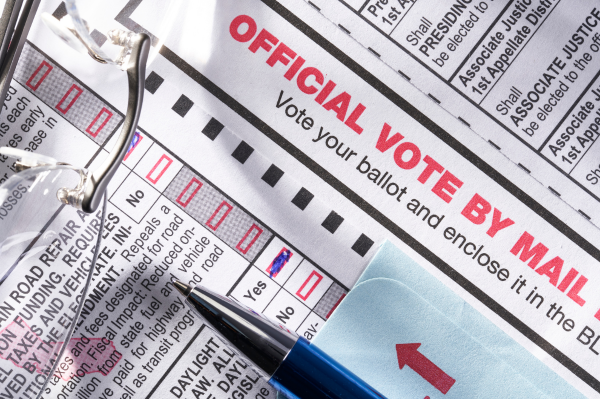The Role Of Blockchain In Ensuring Election Integrity

- The role of blockchain in election integrity is a cornerstone of any thriving democracy. Ensuring that votes are counted accurately, securely, and transparently is vital to maintaining public trust in the electoral process. In recent years, blockchain technology has emerged as a promising solution to enhance election integrity. In this article, we will explore the role of blockchain in safeguarding the electoral process, its benefits, and the challenges it presents.
The Basics of Blockchain Technology
Blockchain is a ledger technology that distributes records transactions across a network of computers. Once a transaction is recorded, it cannot be altered retroactively, ensuring a permanent and immutable record. This technology is perhaps best known for its role in underpinning cryptocurrencies like Bitcoin, but its applications extend far beyond the financial sector.
Benefits of Blockchain in Election Integrity
Secure and Transparent Voting: Blockchain technology can be used to create secure and transparent voting systems. Each vote is recorded as a transaction on the blockchain, and once recorded, it cannot be tampered with. This transparency allows for independent verification of results, reducing the risk of fraud and manipulation.
End-to-End Encryption: Blockchain voting systems can employ end-to-end encryption to protect the privacy of voters. Each voter is assigned a unique cryptographic key, ensuring that their vote remains confidential while still being verifiable on the blockchain.
Immutable Records: The immutability of blockchain records ensures that once a vote is cast, it cannot be altered or deleted. This feature eliminates the possibility of votes being changed after the fact, enhancing trust in the electoral process.
Reducing Fraud: Blockchain can minimize voter fraud by providing a secure and tamper-proof record of votes. Multiple copies of the blockchain exist across the network, making it exceedingly difficult for a single party to manipulate the results by 1. Remote and Overseas Voting- Blockchain technology can facilitate remote and overseas voting, enabling citizens to cast their ballots securely from anywhere in the world. This accessibility can increase voter participation and inclusivity. 2. Real-Time Results- Blockchain can provide real-time election results as soon as votes are cast, counted, and recorded on the ledger. This transparency can help prevent delays and disputes in the vote-counting process.
Challenges and Considerations
While blockchain holds promise for enhancing election integrity, it also presents with several challenges:
Accessibility and Digital Divide- Not all citizens have access to the necessary technology or internet connectivity to participate in blockchain-based voting systems. Ensuring equitable access is a significant challenge.
Security Concerns- While blockchain itself is highly secure, the devices used for voting, such as smartphones or computers, may be vulnerable to hacking or malware, potentially compromising the integrity of the process.
Regulatory and Legal Frameworks
Establishing the legal and regulatory framework for blockchain-based elections can be complex, involving issues related to identity verification, voter eligibility, and dispute resolution. It is therefore important to focus on User Education- Implementing blockchain voting systems requires educating voters about how to use the technology securely and confidently, which can be a significant undertaking.
Conclusion
Blockchain technology has the potential to revolutionize the way elections are conducted, making them more secure, transparent, and accessible. By providing an immutable record of votes, blockchain can enhance election integrity and bolster public trust in democratic processes. However, the challenges of implementation and ensuring equitable access must be addressed for blockchain to fulfill its promise in safeguarding the cornerstone of any democracy: free and fair elections. As technology continues to evolve, the role of blockchain in election integrity will undoubtedly be a topic of continued exploration and innovation.


